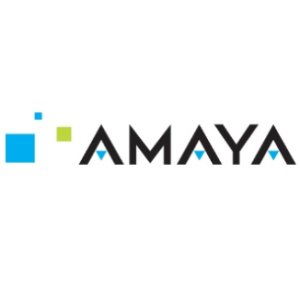Amaya Gaming Insider Trading Investigation Heats Up

 In December, Canadian officials raided the offices of Amaya Gaming, the previously fairly anonymous online gambling firm that announced a $4.9 billion deal to purchase PokerStars and Full Tilt Poker six months earlier.
In December, Canadian officials raided the offices of Amaya Gaming, the previously fairly anonymous online gambling firm that announced a $4.9 billion deal to purchase PokerStars and Full Tilt Poker six months earlier.
The investigation had to do with suspicious trading activity of Amaya’s stock in the weeks leading up to the announcement. Also raided at the same time were the investment bank Canaccord Genuity and the insurance company and financial services provider Manulife Financial.
At the time, Amaya issued a statement saying there was no need to worry: “To the Corporation’s knowledge, this does not involve any allegations of wrongdoing by the Corporation… The Corporation will continue to monitor the investigation if and as it proceeds. The investigation has had no impact on Amaya’s business operations, employees, or companies.”
Alex Dreyfus, head of Zokay Entertainment, also said it wasn’t a big deal, Tweeting, “[The raid is]not related to gaming or PokerStars… It should not affect any NJ licensing process, as Amaya is actually the support/victim of the potential trading, not the initiator… So don’t get excited about writing/spreading/gossiping about the future of AYA/Stars because of that. It happens to hundreds of companies.”
But according to a recent story in the Toronto-based newspaper The Globe and Mail, there is plenty of smoke emanating from what it calls “the largest insider trading investigation in Canadian history,” an indication that the simultaneous raid on three companies was far from routine.
The blockbuster purchase by Amaya came as a huge surprise to the poker community. After all, PokerStars was the giant of the industry, while Amaya was a fairly small player. As The Globe and Mail reported, Amaya Gaming had just CAD $155 million in sales in 2013 and suffered a net loss of $29 million, the third year in a row in which the company lost money. In both 2012 and 2013, the company reported negative working capital.
 Amaya’s stock price reflected its financial issues, as well, bottoming out at $5.81 per share on April 16, 2014, just two months before the PokerStars deal was announced. During the course of those two months, though, Amaya’s stock price began to climb, eclipsing $7 at the beginning of May and $10 by the end of that same month.
Amaya’s stock price reflected its financial issues, as well, bottoming out at $5.81 per share on April 16, 2014, just two months before the PokerStars deal was announced. During the course of those two months, though, Amaya’s stock price began to climb, eclipsing $7 at the beginning of May and $10 by the end of that same month.
On June 11, the day before the deal was announced, Amaya shares closed at $12.02, up from the previous day’s close of $10.94, a whopping 10% increase in one day. Shares hit a high of $38.74 on November 28, 2014.
So why the run-up before the world knew of the $4.9 billion deal? According to The Globe and Mail, Canada’s Autorite des Marches financiers (AMF), the country’s financial regulatory body, received a tip from “two unidentified whistle-blowers” that insiders privy to the deal were letting others in on the secret so that profits could be made on the market.
In a December affidavit, the AMF said, “The investigation reveals that certain individuals in possession of privileged information transmitted that information to several people. These people then took advantage of that information and traded on Amaya shares.”
 Two of the people under investigation are Amaya CEO David Baazov (pictured) and CFO Daniel Sebag. Also under investigation are the CEO of Canaccord’s wealth management division Stuart Raftus and top broker Peter Kirby. At Manulife, 15 employees are being looked at, including the specific branch’s most decorated broker, Thierry Jabbour.
Two of the people under investigation are Amaya CEO David Baazov (pictured) and CFO Daniel Sebag. Also under investigation are the CEO of Canaccord’s wealth management division Stuart Raftus and top broker Peter Kirby. At Manulife, 15 employees are being looked at, including the specific branch’s most decorated broker, Thierry Jabbour.
Needless to say, anyone who has publicly commented on the investigation has said they’ve done nothing wrong.
In addition to those immediate insider suspects, the Financial Industry Regulatory Authority (FINRA) is taking a look at a list of investors who executed trades of Amaya’s stock ahead of the PokerStars news. Most of the time, the people on these sorts of lists did nothing out of the ordinary, but they can sometimes give clues as to possible insider trading. Of note in Amaya’s case is this:
“The regulator’s algorithms identified more than 300 active Amaya investors ahead of the takeover, a number that greatly exceeds the few dozen shareholders typically identified by FINRA when tracking Canadian stocks.”
Included on that list are three friends and business associates of Baazov, Canaccord’s head of trading, the father of Canaccord’s head of sales, and Kirby’s father.
We’ll keep you posted on the latest.
Want the latest poker headlines and interviews? Follow PocketFives on Twitterand Like PocketFives on Facebook.




